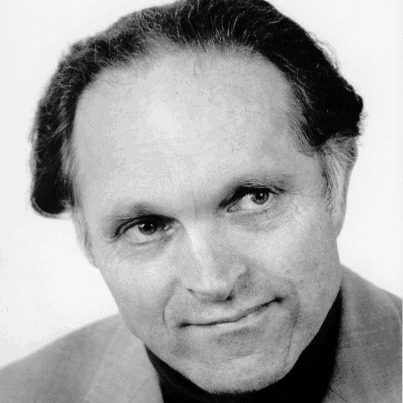- Surname:
- Blankenburg
- First name:
- Wolfgang
- Era:
- 20th century
- Field of expertise:
- Psychiatry
Anthropological psychiatry
Psychotherapy - Place of birth:
- Bremen (DEU)
- * 01.05.1928
- † 16.10.2002

Blankenburg, Wolfgang
German psychologist and psychiatrist drawing on phenomenology and anthropology.
Life and career
Wolfgang Blankenburg (1928-2002) was born and raised in Bremen, Germany. He went to Freiburg in 1947 to study philosophy and psychology. Among his teachers were Martin Heidegger, Eugen Fink, Wilhelm Szilasi and Robert Heiß. He also studied medicine (from 1950 onwards) and earned his doctorate in 1958 with a daseinsanalytic study of a case of paranoid schizophrenia (Daseinsanalytische Studie über einen Fall paranoider Schizophrenie). He met his later wife, Ute Hägele, while still a student. The couple had three children. In 1957, Blankenburg became an assistant physician at Heidelberg University Hospital but then transferred to Freiburg to work at the local psychiatric clinic, which had a focus on psychotherapy. There he was appointed senior physician in 1963 and gained the formal qualification for professorship (habilitation) in 1968. He returned to Heidelberg University Hospital’s psychiatric clinic in the following year and served as the clinic’s acting director in 1972 and 1973. In 1975, he assumed the position of medical director of a psychiatric clinic in Bremen. In 1979, he was appointed professor of psychiatry at the psychiatric clinic of Marburg University Hospital. After becoming emeritus in 1993, he still worked as a psychotherapist and clinical supervisor. Wolfgang Blankenburg died in 2002.
Phenomenological psychopathology of schizophrenia
Blankenburg’s scientific oeuvre has to be seen in the context of late-stage anthropological psychiatry and the advent of psychiatric reform in Germany. Apart from theoretical writings on philosophy and psychiatry, the body-mind problem and the psychopathology of freedom, he also wrote [a number of ]concise case studies. His 1971 habilitation treatise Der Verlust der natürlichen Selbstverständlichkeit (The loss of natural self-evidence) addressed the fundamental personality change in patients with negative or deficit syndrome schizophrenia (“symptom-poor schizophrenics”). On the basis of therapeutic conversations conducted with his patient Anna Rau, who was able to give a most accurate account of how her “being-in-the-world” had changed, Blankenburg sought to identify the abnormalities in attunement to the world that define the essence of schizophrenia (1971: 15). His aim was not to provide etiological or causal explanations but a proper description of what constitutes the core of schizophrenic disorders: the patients’ fundamental lack of a sense of obviousness that usually enables a person to handle everyday situations with [apparent] ease. The core term “loss of natural self-evidence” was directly borrowed from Anna Rau. According to Blankenburg, this expression epitomises the general lack of sensitivity, common-sense orientation and natural confidence in dealing with other people that is typical of schizophrenia.
His approach is still used and has been further developed in more recent research on psychotic disorders (Summa 2012; Mishara 2001).
Literature
Blankenburg, W. (1958): Daseinsanalytische Studie über einen Fall paranoider Schizophrenie – Ein Beitrag zur Dokumentation schizophrener Endzustände. In: Schweizer Archiv für Neurologie und Psychiatrie 81, (9), pp. 9-105.
Blankenburg, W. (1965): Die Verselbständigung eines Themas zum Wahn. In: Jahrbuch für Psychologie, Psychotherapie und Medizinische Anthropologie 13, pp. 137-164.
Blankenburg, W. (1971): Der Verlust der natürlichen Selbstverständlichkeit – Ein Beitrag zur Psychopathologie symptomarmer Schizophrenien. Stuttgart: Enke.
Blankenburg, W. (1981): Wie weit reicht die dialektische Betrachtungsweise in der Psychiatrie? In: Zeitschrift für Klinische Psychologie und Psychotherapie 29, (1), pp. 45-66.
Blankenburg, W. (1981): Körper und Leib in der Psychiatrie. In: Schweizer Archiv für Neurologie, Neurochirurgie und Psychiatrie 131, (1), pp. 13-39.
Blankenburg, W. (1989): Lebensgeschichte und Krankengeschichte. In: Blankenburg, W. (ed.): Biographie und Krankheit – Sammlung psychiatrischer und neurologischer Einzeldarstellungen. Stuttgart: Thieme, pp. 1-10
Blankenburg, W. (1989): Phänomenologie der Leiblichkeit als Grundlage für ein Verständnis der Leiberfahrung psychisch Kranker. In: Daseinsanalyse 6, (3), pp. 161-193.
Blankenburg, W. (1990): Wirkfaktoren paradoxen Vorgehens in der Psychotherapie. In: H. Lang (ed.): Wirkfaktoren in der Psychotherapie. Berlin: Springer, pp. 122-138.
Blankenburg, W. (ed.) (1991): Wahn und Perspektivität. Störungen im Realitätsbezug des Menschen und ihre Therapie. Stuttgart: Enke.
Blankenburg, W. (1996): Vitale und existentielle Angst. In: H. Lang, H. Faller (eds.): Das Phänomen Angst. Frankfurt on the Main: Suhrkamp, pp. 43-73.
Blankenburg, W. (1999): Zur Psychopathologie und Therapie des Wahns unter besonderer Berücksichtigung des Realitätsbezugs. In: P. Hartwich, B. Pflug (eds.): Schizophrenien – Wege der Behandlung. Sternfels: Verlag Wissenschaft und Praxis, pp. 59-94.
Kraus, A. (2003): Wolfgang Blankenburg (1928 bis 2002). In: Der Nervenarzt 74, (10), pp. 1030-1031.
Mishara, A. (2001): On Wolfgang Blankenburg. Common Sense and Schizophrenia. In: Philosophy, Psychiatry & Psychology 8, (4), pp. 317-322.
Summa, M. (2012): Is This Self-Evident? The Phenomenological Method and the Psychopathology of Common Sense. In: Rivista internazionale di filosofia e psicologia 3, (2), pp. 191-207.
Thoma, S. (2013): Buchbesprechung, Der Verlust der natürlichen Selbstverständlichkeit – Ein Beitrag zur Psychopathologie symptomarmer Schizophrenien. In: Sozialpsychiatrische Informationen 43, (3), pp. 51-52.
Wulff, E. (2007): Blankenburgs daseinsanalytische Studien. In: Sozialpsychiatrische Informationen 37, (4), pp. 11-15.
Julian Schwarz
Foto: private collection, copyright.
Referencing format
Julian Schwarz (2015):
Blankenburg, Wolfgang.
In: Biographisches Archiv der Psychiatrie.
URL:
www.biapsy.de/index.php/en/9-biographien-a-z/34-blankenburg-wolfgang-e
(retrieved on:02.07.2025)
